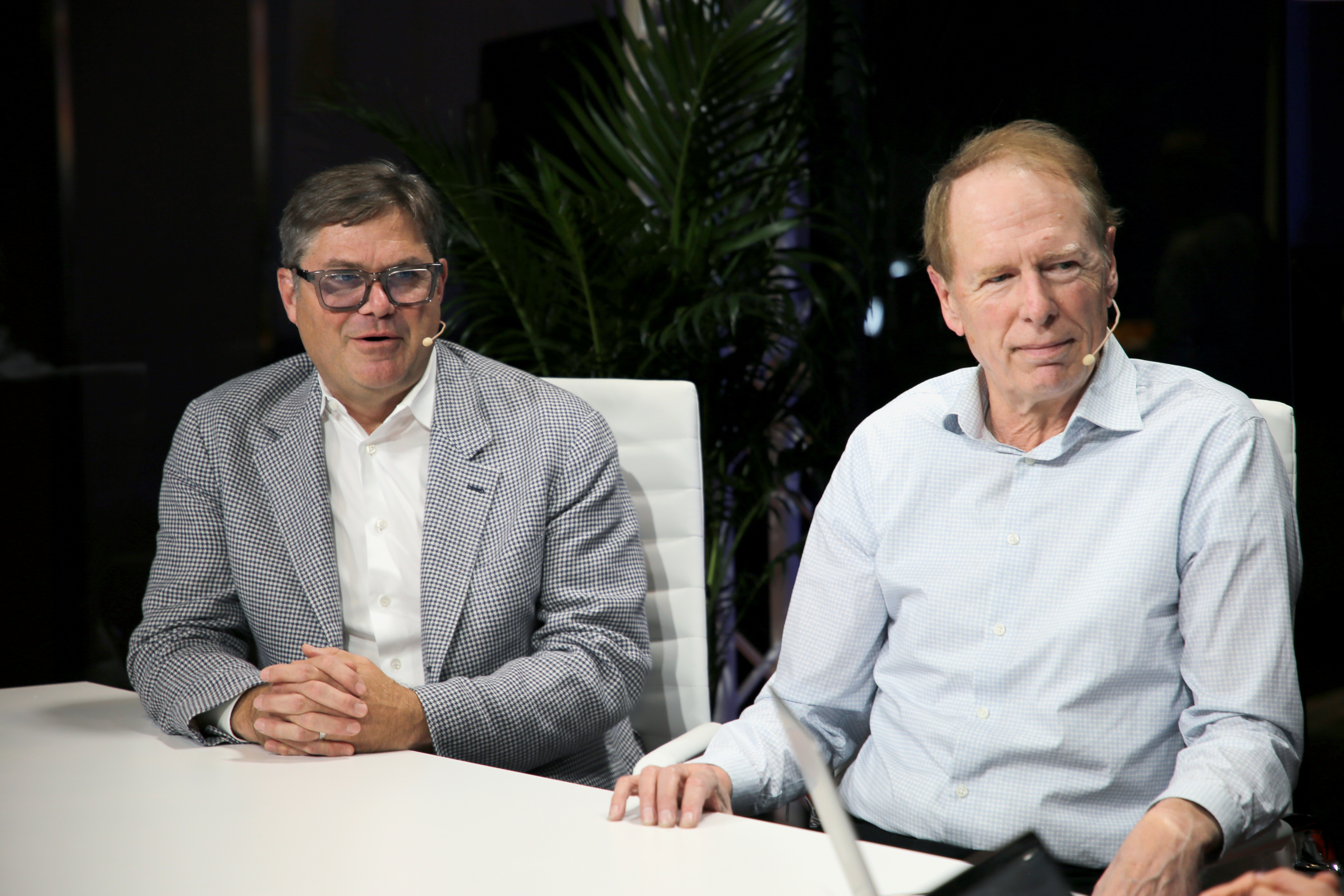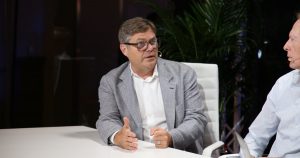 AI
AI
 AI
AI
 AI
AI
Artificial intelligence is at the forefront of shaking up industries, with AI workforce automation poised to transform how businesses operate.
While the promise of increased efficiency and innovation is clear, the challenges that come with integrating these technologies — such as ensuring governance, security and minimizing workforce disruptions — are just as significant, according to Craig Le Clair (pictured, right), vice president and principal analyst at Forrester Research Inc. As AI becomes more central to mission-critical tasks, companies are focusing on how to build robust automation systems that are resilient, reliable and trusted. This balance between advancing technology and addressing human impact is shaping the future of industries across the globe.

UiPath’s Bobby Patrick discusses AI workforce automation.
“A lot of the AI is helping with the human intent understanding,” Le Clair said. “It’s helping to reduce the friction between the applications and so forth. But without taking that human intent and doing something with it, getting something done, it becomes kind of sterile.”
Le Clair and Bobby Patrick (left), chief marketing officer of UiPath Inc., spoke with theCUBE Research’s Dave Vellante and host Rebecca Knight at UiPath Forward 2024, during an exclusive broadcast on theCUBE, SiliconANGLE Media’s livestreaming studio. They discussed how artificial intelligence and AI workforce automation are transforming industries by increasing efficiency and innovation while addressing challenges such as governance, security and the evolving roles of workers in response to these technological shifts. (* Disclosure below.)
AI has an increasing and evolving role in the workforce, particularly in how it affects workers. Automation is not just a concern for businesses, but for workers who may feel vulnerable to the changes brought by AI and automation, according to Le Clair. His upcoming book, “Random Acts of Automation,” aims to provide a roadmap for workers, helping them understand how to navigate the shifts brought by human-capable automation.
“The basic idea is that all this technology we’re talking about here, whether it’s agents or agentic, is really going to affect the workforce,” he said. “A lot of the books about this are written for the business community … this one’s written for workers.”
Workers across various sectors are seeing the effects of AI, whether through the rise of gig work or concerns that their credentials may be less valued in an age where AI can perform complex tasks. It is important to focus not on how many jobs will be lost, but on how job roles will shift and what workers can do to stay relevant in this new landscape, according to Le Clair.
“I think there’s an optimistic path for the middle, that the middle using AI can do the work of more highly trained and credentialed professionals,” he said. “I think it’s a very optimistic path for what I call human-touch workers, which is the lowest level of service workers. All of this physical robotics that we’re doing, which are now getting integrated with LLMs, is going to make their jobs a lot safer.”
Governance and trust in AI is also crucial, according to Patrick. Automation, especially when combined with large language models, needs to be governed carefully to avoid issues such as data misuse or security breaches.
“Many of these guys are just talking about these little agents and they have no governance, no control, and I think we bring a level of seriousness to it, which we brought in the world of automation,” he said. “If you look at RPA, the areas that robots are used are mission-critical … they’ve got to be highly resilient, highly reliable, very trustworthy.”
UiPath is positioning itself as a leader in orchestrating automation, Patrick explained. The company is partnering with AI powerhouses such as OpenAI Inc. and Anthropic PBC to provide an open framework that allows businesses to bring in their own AI models and integrate them into existing workflows.
“We added another level of complexity to this and say, ‘Look, we’re also going to be very open as a framework for the company,’” Patrick said. “You can bring your own model. We announced several partnerships here with Inflection AI, Anthropic. We’re going to be the Switzerland and that ability to orchestrate the reality of the complexity that our customers know is what’s needed to deliver AI in real work and real complex work.”
Here’s the complete video interview, part of SiliconANGLE’s and theCUBE Research’s coverage of UiPath Forward 2024:
(* Disclosure: UiPath Inc. sponsored this segment of theCUBE. Neither UiPath nor other sponsors have editorial control over content on theCUBE or SiliconANGLE.)
Support our mission to keep content open and free by engaging with theCUBE community. Join theCUBE’s Alumni Trust Network, where technology leaders connect, share intelligence and create opportunities.
Founded by tech visionaries John Furrier and Dave Vellante, SiliconANGLE Media has built a dynamic ecosystem of industry-leading digital media brands that reach 15+ million elite tech professionals. Our new proprietary theCUBE AI Video Cloud is breaking ground in audience interaction, leveraging theCUBEai.com neural network to help technology companies make data-driven decisions and stay at the forefront of industry conversations.